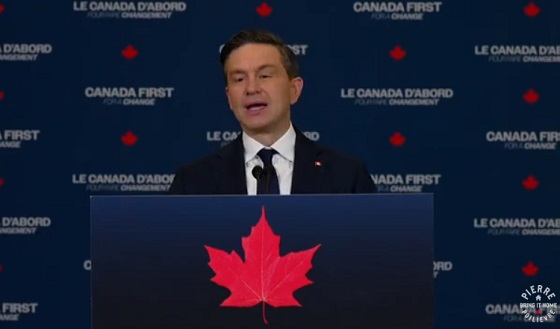Also Interesting
Alberta Plans To Open iGaming Market After Ontario’s Success

With plans to regulate its iGaming market, Alberta aims to deliver safer gaming experiences, greater variety for players, and stronger consumer protections.
Alberta is preparing to launch a regulated iGaming market, following Ontario’s successful model. By opening the industry to private operators, the province aims to increase competition, enhance consumer protections, and generate significant revenue. If implemented, this move could position Alberta as a key player in Canada’s evolving online gaming landscape.
The Alberta government has announced plans to open its iGaming market, following in the footsteps of Ontario’s regulated model. The move is expected to create a competitive online gaming environment by allowing private operators to enter the market, rather than keeping online gambling under the sole control of Alberta Gaming, Liquor and Cannabis (AGLC). This shift aligns with the province’s broader strategy to modernize its gaming industry, offering more choices for players while generating additional revenue for public services.
Key stakeholders in this expansion include AGLC, which will oversee regulatory compliance and licensing, and private gaming operators looking to secure a presence in the province. While specific details about licensing requirements and revenue-sharing structures are still being finalized, industry experts anticipate a framework similar to Ontario’s, where operators must meet strict guidelines to ensure consumer protection. Although no official launch date has been set, Alberta officials have indicated that the market could open within 2025, pending regulatory approvals and final policy decisions.
Learning from Ontario’s iGaming Model
Ontario’s transition to a regulated iGaming market in 2022 has been widely regarded as a success, providing a model for other provinces like Alberta to follow. By allowing private operators to enter the market under the oversight of iGaming Ontario (iGO), the province created a competitive and transparent industry that offers players a safer and more diverse gaming experience. The shift also helped curb unregulated offshore gambling by giving players legal, well-regulated alternatives.
Since its launch, the market has seen impressive growth. In its first year, the province generated over $1.4 billion in gaming revenue, making it one of the largest regulated online gaming markets in North America. The competitive landscape has attracted dozens of operators, contributing to job creation and economic development while ensuring a steady stream of tax revenue.
Apart from financial success, regulation has strengthened consumer protection through responsible gaming measures, operator accountability, and stringent licensing requirements. This model has boosted government revenue and set a precedent for how other Canadian provinces, including Alberta, can structure their own regulated iGaming markets.

Potential Challenges and Considerations
While Alberta’s plan to open its iGaming market presents significant opportunities, it also comes with challenges that must be carefully managed. One key hurdle is the regulatory framework, as the province must establish clear licensing requirements, tax structures, and operational guidelines to ensure a smooth transition. Policymakers will need to balance industry growth with responsible gaming practices, learning from Ontario’s experience to avoid potential pitfalls.
Responsible gaming will be another major focus, as increased accessibility to online gambling can raise concerns about addiction and player protection. AGLC will need to implement strict measures, including self-exclusion programs, deposit limits, and public awareness campaigns to promote safe gaming habits. Ensuring that operators comply with these measures will be critical to maintaining consumer trust.
Industry and Player Expectations
This move has sparked interest among gaming operators and industry experts. Many see this as a natural progression following Ontario’s success, with expectations that the province will attract major operators eager to expand into a newly regulated space. However, industry leaders will be watching closely to see how Alberta structures its licensing process and tax rates, which will play a key role in determining the market’s competitiveness.
While Alberta is following Ontario’s lead, its approach may differ in key areas. Ontario operates through iGaming Ontario, a regulatory body that oversees private operators, while Alberta may take a more direct role through AGLC. Additionally, given Alberta’s smaller population compared to Ontario, the province may focus on a more controlled rollout rather than opening the market all at once.
For players, the expansion could mean access to a wider range of online casinos, better game variety, including a larger selection of online slots and table games, and more competitive promotions. With private operators entering the scene, expect an increase in sign-up offers, loyalty programs, and exclusive bonuses designed to attract new customers. If executed effectively, Alberta’s iGaming market could create a more dynamic and player-friendly experience while maintaining strong consumer protections.

What Alberta’s iGaming Future Could Look Like
Alberta’s plan to open its iGaming market marks a significant shift toward a more competitive and regulated online gaming industry. By following Ontario’s successful model, the province aims to create a safer and more dynamic gaming environment while driving economic growth. With private operators expected to enter the market under AGLC’s oversight, players will likely benefit from greater choice and enhanced consumer protections.
If Alberta successfully implements this framework, it could set the stage for other provinces to follow, further shaping Canada’s evolving iGaming landscape. A well-regulated market not only boosts provincial revenue but also strengthens responsible gaming initiatives and keeps players within legal platforms. As the industry awaits further details, Alberta’s next steps will be crucial in determining whether it will become Canada’s next major online gaming hub.
Also Interesting
Adoption of Smart City Revolution Depends On How Well Alberta Balances Innovations with Privacy Protection

Alberta is undergoing a technological transformation, with cities like Calgary and Edmonton leading the charge toward becoming smart cities. As governments and private enterprises invest in cutting-edge infrastructure, Alberta is embracing artificial intelligence (AI), 5G networks, and the Internet of Things (IoT) to enhance urban efficiency, sustainability, and connectivity. From real-time traffic management to AI-driven energy grids, these
advancements are reshaping how residents interact with their environment.
The push toward smart cities is not just about convenience—it’s about future-proofing Alberta’s economy. As the province diversifies beyond oil and gas, digital innovation is becoming a key driver of growth, attracting tech startups and investors eager to be part of Canada’s next wave of digital transformation.
5G and IoT: The Backbone of Alberta’s Smart Cities
Revolutionizing Connectivity
One of the most critical advancements fueling Alberta’s smart city push is the rollout of 5G networks. With ultra-fast speeds and low latency, 5G is the foundation for real-time data processing, enabling IoT devices to communicate seamlessly. This technology is already being tested in Calgary and Edmonton, where smart traffic lights, autonomous vehicles, and connected sensors are being deployed to improve urban mobility and reduce congestion.
IoT’s Role in Smart Infrastructure
IoT devices are transforming city management in ways never seen before. From sensor-equipped waste bins that signal when they need emptying to automated streetlights that adjust brightness based on pedestrian activity, Alberta’s cities are becoming more responsive and efficient. These developments are not only reducing costs for municipalities but also enhancing sustainability efforts by minimizing waste and optimizing energy use.
AI-Powered Smart Services
Traffic and Public Transport Optimization
Alberta’s smart city initiatives are tackling one of the biggest urban challenges: traffic congestion. AI-powered analytics tools are helping cities adjust traffic patterns in real-time based on demand. Edmonton has already piloted AI-driven transit scheduling, allowing buses to operate more efficiently, reducing wait times and energy consumption.
AI is also transforming public safety, with predictive analytics helping law enforcement anticipate crime hotspots and allocate resources more effectively. Facial recognition and AI-driven surveillance are controversial yet increasingly utilized tools in smart city security frameworks.
Smart Energy Grids and Sustainability
Alberta’s cities are leveraging AI to optimize energy consumption. Smart grids powered by machine learning are helping utilities predict energy demand and automate distribution, making electricity consumption more efficient. With an increasing push toward renewable energy sources, AI is being used to integrate solar and wind power into city grids while maintaining stable energy distribution.
The Business Impact of Smart Cities in Alberta
As Alberta invests in smart city technologies, businesses are capitalizing on new opportunities in fintech, cybersecurity, and digital entertainment. The rapid deployment of 5G and AI-driven analytics is revolutionizing industries that rely on real-time data processing, such as e-commerce, finance, and online entertainment.
One sector benefiting from this digital transformation is online gambling in Alberta. With ultra-fast connectivity and AI-driven security measures, gaming platforms are providing seamless, real-time experiences, particularly in live dealer casino gaming. Improved network infrastructure ensures that high-speed, low-latency gaming is accessible to a broader audience, enhancing user experience and security.
Challenges and Privacy Concerns
While the benefits of smart city technologies are vast, they also raise critical concerns about privacy, data security, and regulatory oversight. The widespread use of IoT sensors and AI-powered surveillance has sparked debates about how much data is being collected and who has access to it. With cyber threats on the rise, protecting Alberta’s digital infrastructure is crucial to maintaining public trust in these innovations.
Additionally, the high costs of implementing smart city projects present financial safety challenges for municipalities. While private sector partnerships can help fund initiatives, questions remain about data ownership and commercialization, particularly as big tech companies play an increasing role in urban development.
The Future of Alberta’s Smart Cities
Alberta’s commitment to smart city innovation is reshaping its urban landscape, positioning it as a leader in Canada’s digital transformation. The continued expansion of 5G, AI, and IoT-driven solutions will further integrate technology into daily life, making cities more efficient, sustainable, and connected.
Looking ahead, the success of these initiatives will depend on how well Alberta balances innovation with privacy protections and public trust. As cities evolve into intelligent ecosystems, Alberta’s smart city revolution is set to redefine what it means to live and work in a digitally optimized urban environment.
Also Interesting
Mortgage Mayhem: How Rising Interest Rates Are Squeezing Alberta Homeowners

As interest rates continue to climb, Alberta homeowners are facing a financial reckoning. With approximately 1.2 million Canadians set to renew their mortgages in 2025, many of whom secured loans during periods of historically low interest rates, a significant number are anticipating higher payments upon renewal. This financial strain is poised to impact households across the province, leading to tough financial choices and lifestyle adjustments.
The real estate market in Alberta has long been a beacon of affordability compared to cities like Toronto and Vancouver. However, with rising interest rates, even this relative advantage is beginning to erode. Homeowners who took on variable-rate mortgages or secured loans during historically low-interest periods are now feeling the squeeze. Many face mortgage payments that could increase by hundreds, if not thousands, of dollars each month.
Tough Choices: Cutting Back on Essentials and Luxuries
With nearly 60 percent of mortgage holders in the province expecting higher payments upon renewal in 2025, financial strain is set to hit households hard. According to recent reports, 35 percent of homeowners anticipate a slight increase, while 25 per cent brace for a significant hike. For many, this means tough financial choices and lifestyle adjustments.
Among those expecting a rise in mortgage payments, a significant portion anticipates financial pressure on their household. In response, Albertans are slashing discretionary spending, with many cutting back on non-essentials. Travel budgets are taking a hit, with some reducing or eliminating trips altogether. Even more concerning, others say they will have to trim spending on essentials like groceries and gas to stay afloat.
The strain extends beyond just the affected homeowners. Local businesses, especially those in retail, hospitality, and tourism, are likely to feel the ripple effects. When a significant portion of the population pulls back on spending, economic activity slows, and small businesses may struggle to stay profitable.
Financial advisors suggest that those facing increased mortgage payments should revisit their household budgets, explore refinancing options, and consult with their lenders to see if adjustments can be made.
The Alberta Economic Factor: Boom, Bust, and Mortgage Stress
Unlike other regions in Canada, Alberta’s economy remains tightly linked to the oil and gas sector, leading to greater volatility in household incomes. While wages can be high, employment remains unpredictable, making financial resilience more difficult to maintain. This economic unpredictability has always been a challenge for residents. When the oil industry booms, wages surge, employment rates rise, and homeownership becomes more accessible.
But during downturns, layoffs become common, and homeowners can find themselves struggling to keep up with payments. This cycle makes high mortgage payments especially daunting for Albertans, many of whom may not have significant emergency savings to weather financial storms.
In cases where savings run out, some homeowners may need alternative financial solutions, such as a line of credit from Fora Credit, to cover emergency expenses and avoid missing payments.
A Housing Shift: Downsizing and Relocating
For those struggling to manage higher mortgage payments, some are considering drastic moves. Downsizing or relocating to more affordable areas has become a viable option for many Albertans. Homeowners are exploring opportunities to reduce monthly carrying costs, whether by moving to smaller homes or shifting to regions with lower real estate prices.
There is also a growing interest in multi-generational living arrangements. Families are pooling resources to purchase homes together, enabling them to split mortgage costs and share living expenses. While this approach has been common in other parts of the world, it is becoming an increasingly attractive solution in Alberta as mortgage affordability diminishes.
What’s Next for Alberta’s Housing Market?
As the Bank of Canada continues to grapple with inflation, interest rates may remain elevated for the foreseeable future. This could further strain homeowners and cool Alberta’s once-hot housing market. Higher mortgage rates make it more difficult for new buyers to enter the market, leading to decreased demand and potentially stabilizing or reducing home prices in some areas.
Experts suggest that while home values may soften slightly, a full market crash is unlikely. Alberta’s relatively low housing costs compared to major metropolitan areas in Canada provide some buffer against drastic devaluations.
Still, for those facing renewal in 2025, preparation is key. Financial advisors recommend stress-testing mortgage payments, meaning homeowners should calculate potential increases and adjust their budgets accordingly.
How to Prepare for Rising Mortgage Costs
Homeowners who anticipate higher payments should take action now rather than waiting until their renewal date arrives. Some strategies to consider include:
● Refinancing: If possible, homeowners should explore refinancing options that might offer lower rates or extended amortization periods to reduce monthly payments.
● Cutting Expenses: Budget adjustments, such as reducing discretionary spending and optimizing essential costs, can help cushion the impact of higher mortgage payments.
● Increasing Income: Seeking additional income sources, whether through side gigs, renting out portions of their home, or negotiating for a salary increase, can help mitigate financial strain.
● Seeking Professional Advice: Consulting with mortgage brokers, financial advisors, and lenders can provide tailored solutions for those struggling to meet their new financial obligations.
For Albertans facing mortgage renewal in 2025, now is the time to assess financial options, seek expert advice, and prepare for a potentially rocky road ahead. While the challenge is significant, proactive planning and smart financial decisions can help homeowners navigate this difficult period and maintain stability despite rising interest rates.
-

 2025 Federal Election2 days ago
2025 Federal Election2 days agoConservative Party urges investigation into Carney plan to spend $1 billion on heat pumps
-

 2025 Federal Election2 days ago
2025 Federal Election2 days agoFifty Shades of Mark Carney
-

 Health2 days ago
Health2 days agoExpert Medical Record Reviews Of The Two Girls In Texas Who Purportedly Died of Measles
-

 2025 Federal Election2 days ago
2025 Federal Election2 days agoCorporate Media Isn’t Reporting on Foreign Interference—It’s Covering for It
-

 2025 Federal Election2 days ago
2025 Federal Election2 days agoMark Carney To Ban Free Speech if Elected
-

 MAiD2 days ago
MAiD2 days agoDisability rights panel calls out Canada, US states pushing euthanasia on sick patients
-

 2025 Federal Election2 days ago
2025 Federal Election2 days agoPoilievre will make it harder for politicians to boost their portfolios, close Carney loopholes
-

 2025 Federal Election1 day ago
2025 Federal Election1 day agoPPE Videos, CCP Letters Reveal Pandemic Coordination with Liberal Riding Boss and Former JCCC Leader—While Carney Denies Significant Meeting In Campaign






